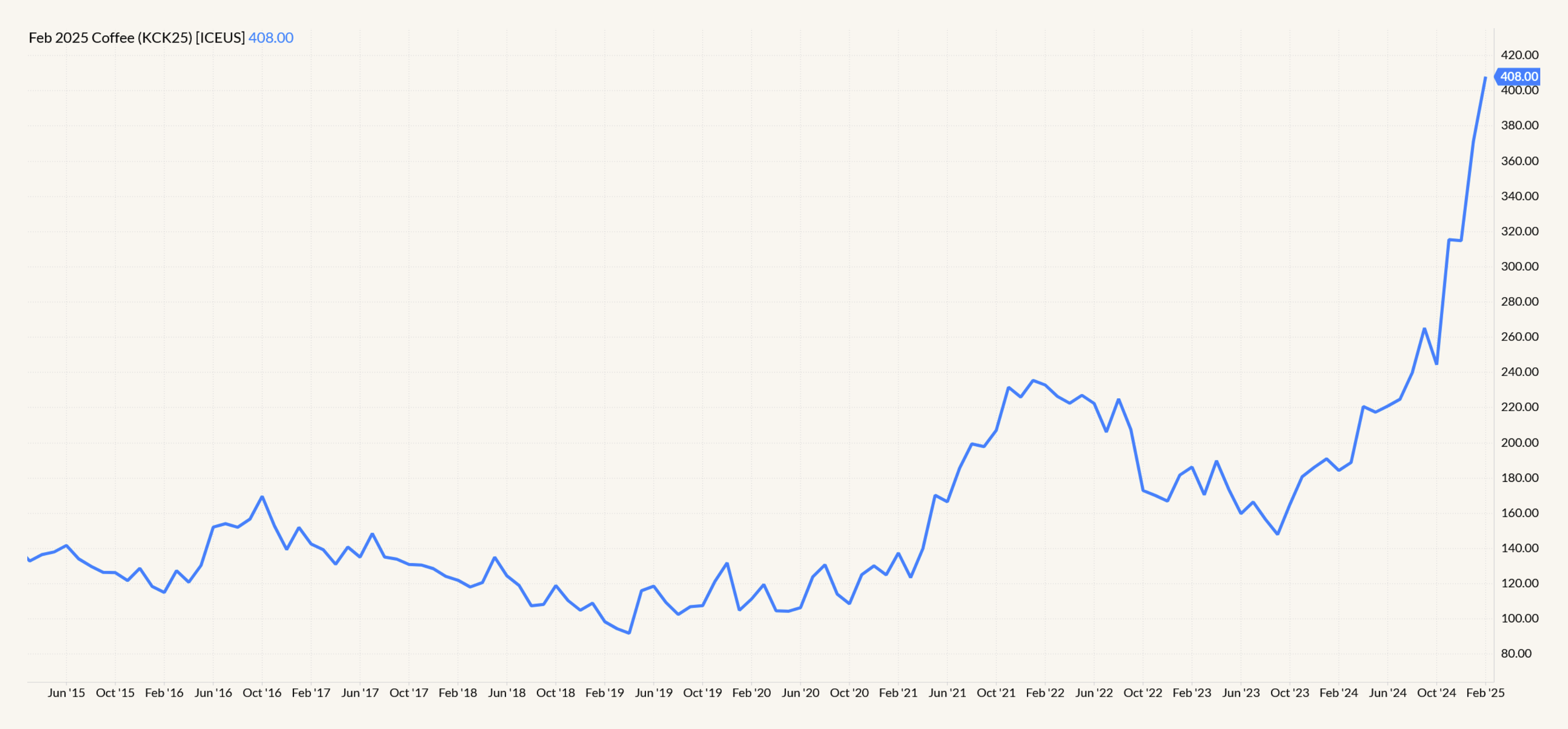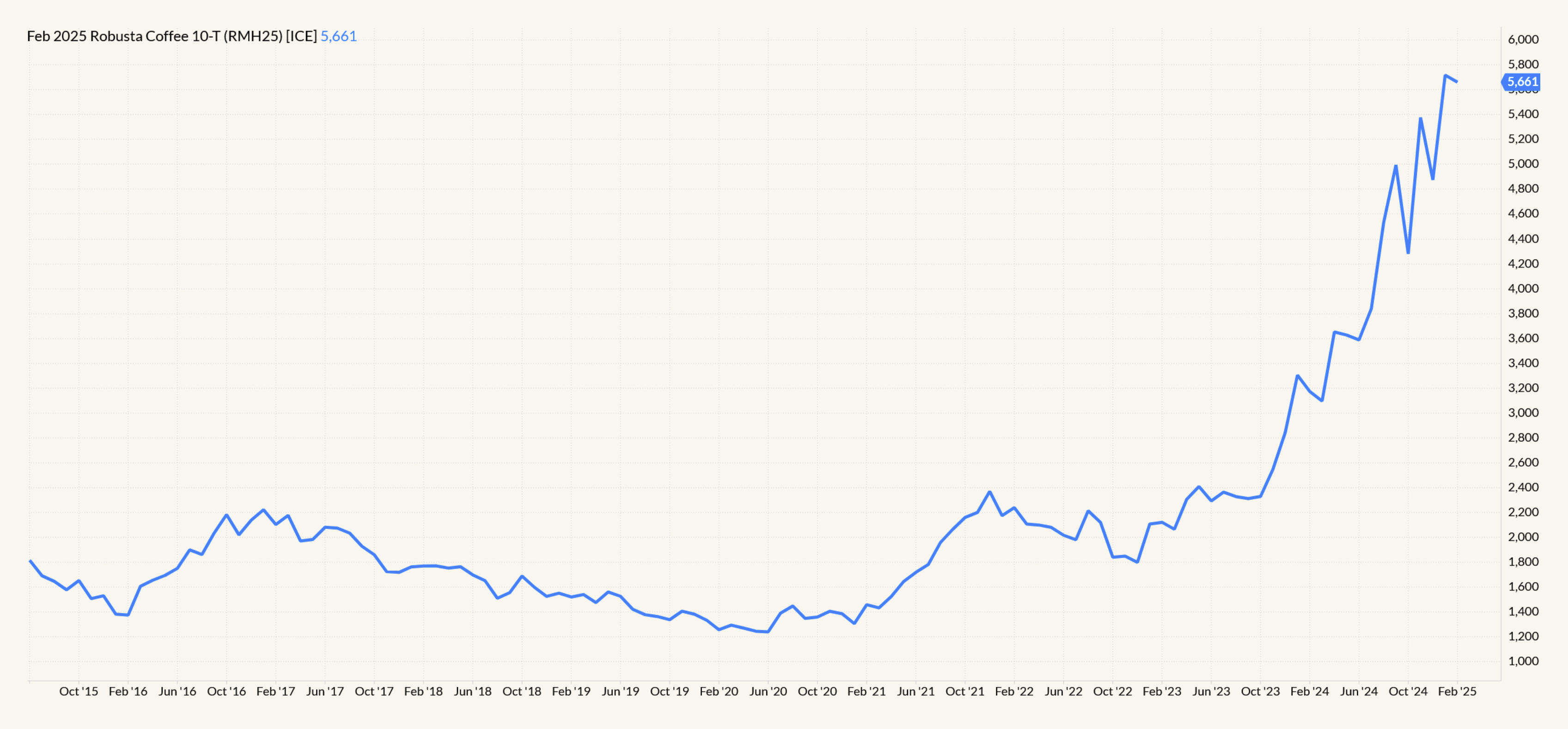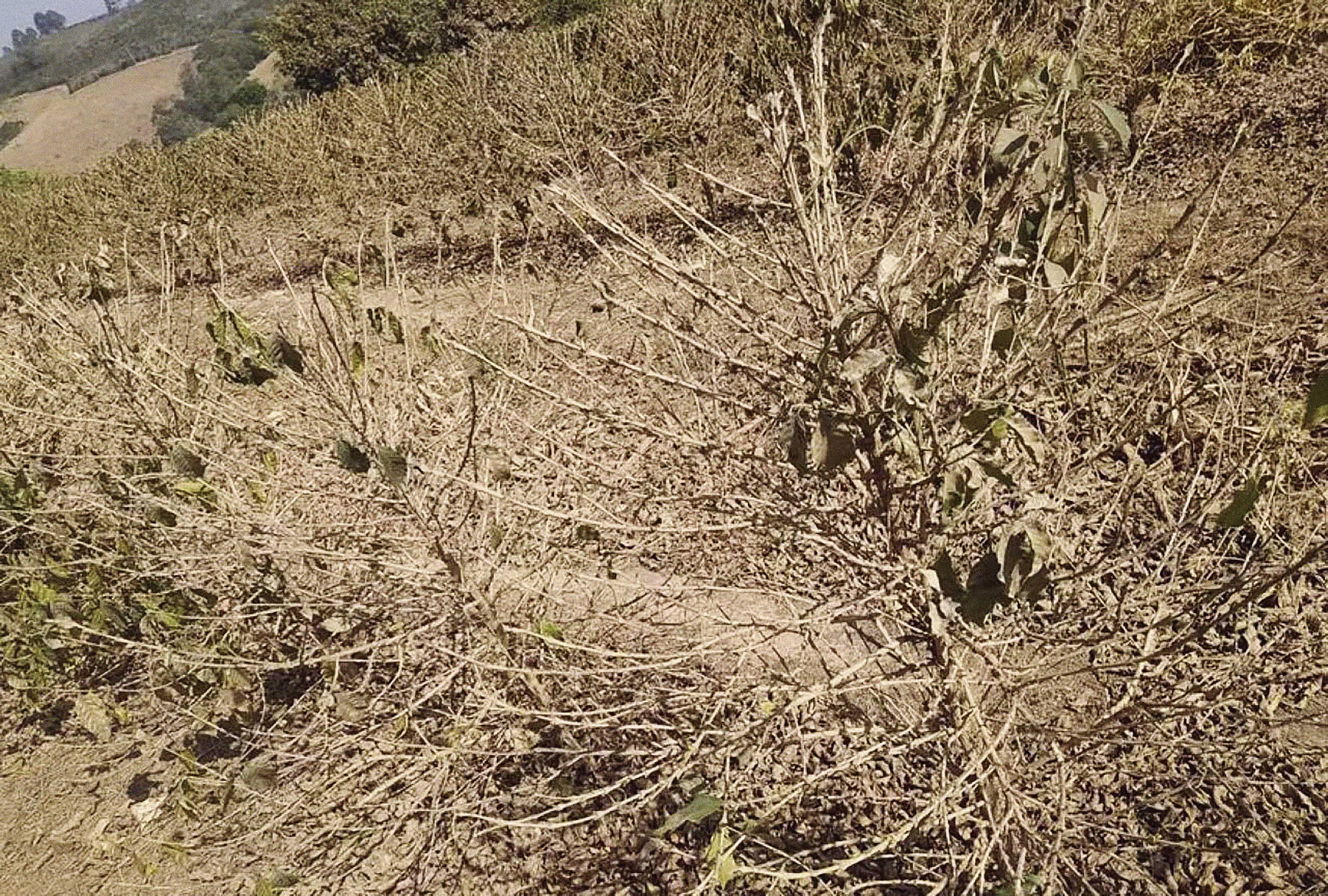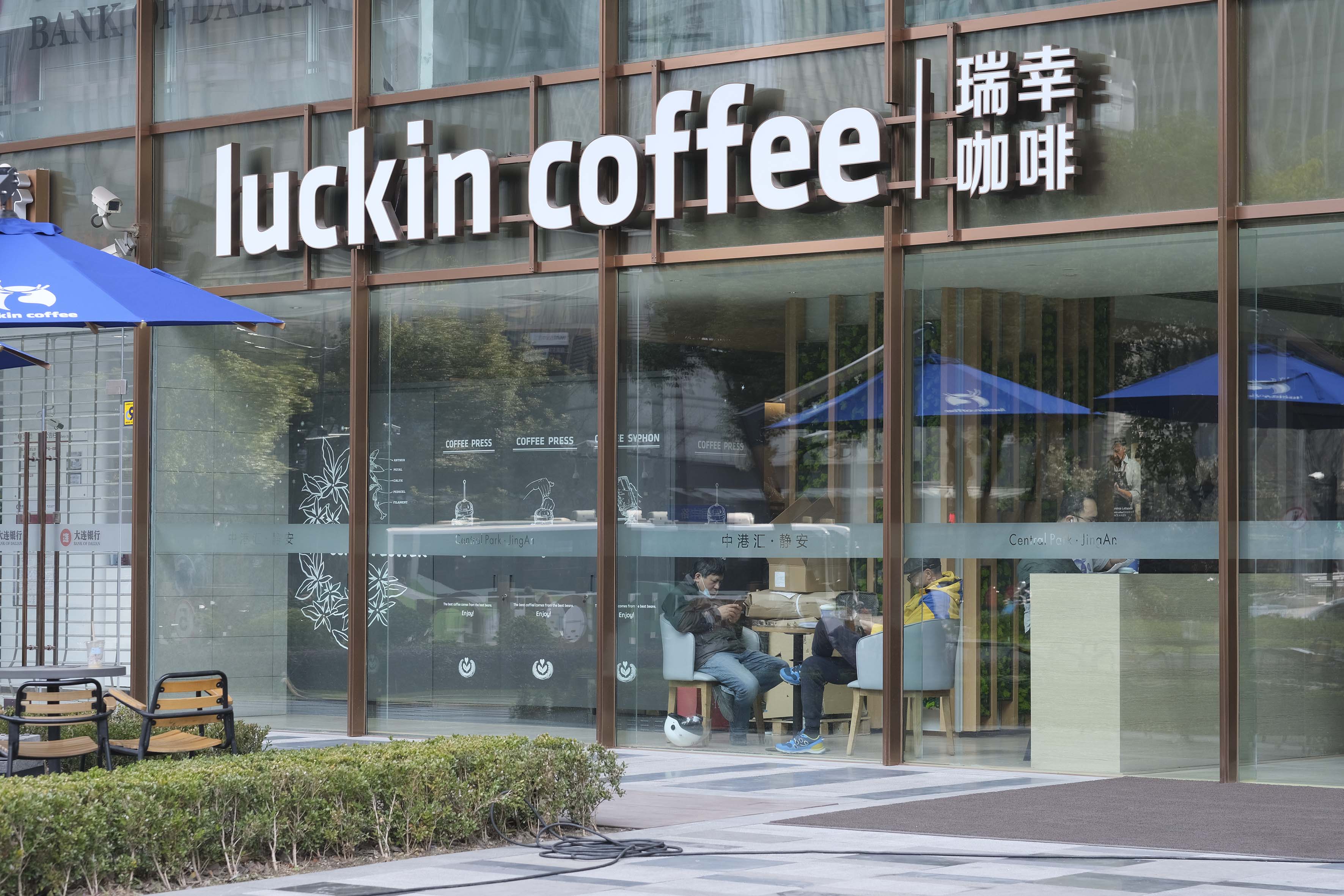Economic and political uncertainties
Geopolitical tensions (Ukraine war, Middle East conflict, threat of trade tariffs, etc.) and economic uncertainties have also contributed to the volatility of coffee prices.
Although the new EUDR law (EU Deforestation Regulation) has been postponed by one year to 2026, it poses a major challenge for exporters at origin and importers/coffee roasters worldwide and is leading to uncertainty.
With regard to the import of organic products, the EU has also set new, very strict regulations for cultivation and import controls for 2026. It is assumed that the cultivation of organic coffee will therefore decline, all the more so now that the market price for non-certified coffees is also very high.
Since the pandemic, there has been an imbalance in the distribution of transport containers worldwide. Many shipments can therefore only be booked at very high prices and are often very late. Very few container ships still travel through the Suez Canal and have to take the much longer and therefore more expensive route under the Cape in South Africa.




